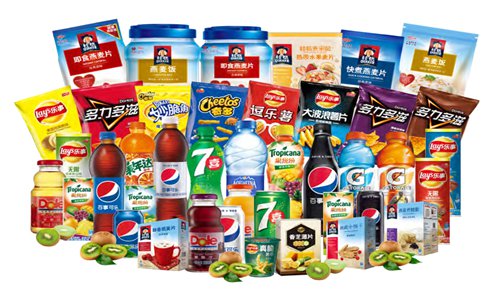Multinational food and beverage giant deepens roots in Chinese market amid gloomy world economy
Source:Global Times Published: 2020/6/2 16:28:41

PepsiCo's products Photo: Courtesy of PepsiCo
Multinationals from different industries have shown commitment to and confidence in their development in China, the world's second-largest economy and one of the largest consumer markets, as it has been steadily and safely resuming economic growth amid the deadly coronavirus pandemic.
Multinational food and beverage giant PepsiCo Inc on Monday announced it has obtained Chinese government regulatory approval for its acquisition of Hangzhou Haomusi Food Co (Be & Cheery), one of the largest snack foods companies in China, and the transaction was closed on Monday.
The transaction, in line with PepsiCo's commitment to becoming China's leading consumer-centric food and beverage company, is expected to benefit associates and local partners of both companies as PepsiCo looks to create sustained growth and development in China's snack foods market, read a statement sent to the Global Times by the company.

Ram Krishnan, President & CEO of PepsiCo Greater China Region Photo: Courtesy of PepsiCo
Ram Krishnan, CEO of PepsiCo's APAC Sector, said in the statement that "Partnering with Be & Cheery is a major milestone in PepsiCo's 'In China, For China, With China' commitment. With this acquisition, PepsiCo has invested more than 53 billion yuan ($7.4 billion) over the last 10 years in China, one of our most important markets globally."
"Post-closing, Be & Cheery will operate as an independent business unit as part of PepsiCo's APAC Sector. Simultaneously, PepsiCo will work closely with Be & Cheery's management team led by its Chairman Qiu Haoqun, to inject core capabilities and unlock synergies to better serve China's consumers. We see significant opportunities to create business value across the entire value chain," Krishnan said.
Founded in 2003 and headquartered in Hangzhou, East China's Zhejiang Province, Be & Cheery is a snack foods company with operations spanning research and development (R&D), manufacturing, sales, storage and logistics. It has a broad product portfolio including nuts, dried fruits, dried meats and pastries. Led by data-driven product innovation and a flexible supply chain, Be & Cheery is stepping toward omnichannel presence through online and offline channels, interacting with over 70 million active consumers.
After closing, Be & Cheery will operate as an independent business unit as part of PepsiCo's APAC Sector. Simultaneously, PepsiCo will work closely with Be & Cheery's founding management team to inject core capabilities and unlock synergies to better serve China's consumers, said the statement.
As one of the first batch of multinational companies to enter China, PepsiCo has been in the country for nearly four decades and has seven food plants, 18 potato farms and the largest R&D center outside North America. For many years, PepsiCo has been upholding its long-standing "In China, For China, With China" commitment and building a successful food and beverage business locally, while also actively investing in China's development journey by engaging in a range of philanthropic programs on water, nutrition, education, women in development and disaster relief efforts, per the statement.
The global economy is now under mounting pressure as the pandemic continues rip through the world. China, after months of efforts to combat the virus, has shown strong resilience and is having a faster recovery. With confidence in the Chinese economy, foreign companies continue to pour investment into the country despite the increasingly challenging external environment it is facing.
PepsiCo is not the only multinational to show its commitment to developing in China. On May 19, US industrial conglomerate Honeywell announced it would open its emerging market headquarters and innovation center in Wuhan, Central China's Hubei Province. According to data from China's Ministry of Commerce, over 13,000 foreign invested companies were newly established in China in the first four months of the year.
Posted in: PRESS RELEASE